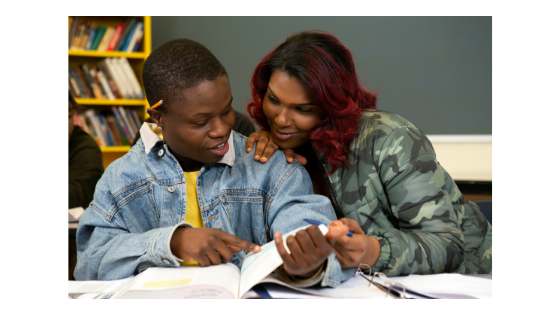During June, some parts of the world recognize Pride Month, celebrating sexuality and gender diversity, as well as the importance of individual self-expression. In other parts of the world, however, governments and societies have moved to limit rights, protections, and respect for people who do not identify as heteronormative. Being open about identity is not a universal liberty.
Introduction to LGBTQ+ Studies: An Open Textbook is therefore a timely and valuable addition to the literature. Both open and accessible, it contributes momentum to the subject, and it might just make a difference in those places where discourse and openness is limited. It also comes with a great back story, one that Rebus Community’s recent practicum student, Donna Langille, investigated during her master’s research into a number of open textbook cases.
Community response and student engagement
The project is being led by Deborah Amory (SUNY Empire State College) and co-editor Sean Massey (Binghamton University). Allison Brown, the Digital Publishing Services Manager at SUNY Geneseo, will serve as project manager. The team received SUNY OER Creation Funding for the project, and the textbook will be published in collaboration with SUNY Press.
Beyond this very solid core, there is also a huge number of volunteer participants in the project, supported by the resources, tools, and reach of the Rebus platform. Gratifyingly, within two days of posting the call for contributors, nearly 30 people were in contact with Deb and Sean, offering their interest and skills to the project. In so many ways, it exemplifies how we are seeing a shift in the meaning of “publisher,” that is, from a distinct company to a diffuse community.
As a former professor myself, I find the project particularly progressive because of its direct student involvement. Deb and Sean are asking students to develop short media clips about concepts to be included in the textbook. Adding their voices in this way ensures that the content will be grounded in lived experience, and therefore relevant to eventual readers. Deb will also test out parts of the textbook in her online LGBTQ Studies course, gathering feedback from a wider cross-section of students. This kind of exchange between author and reader, teacher and learner is exactly what open education should be about.

Staying current, staying complex
One of the challenges with writing any textbook that deals with a rapidly evolving theme is continued relevancy. As our collective understandings of LGBTQ issues and stories evolve, an open textbook about them can be revised and updated. This is particularly important for students who identify as queer, non-binary, trans, gender fluid, and non-hetero: learning is more meaningful when the textbook reflects issues that they themselves face daily. As a support to diversity and equity in the classroom, a resource like this is invaluable.
An OER about LGBTQ Studies also opens the door for increasing the diversity of concepts and constructs that are written about. This is fundamental for emerging areas of scholarship and academic activism. I am often involved in conversations about the initialism “LGBTQ” itself, which is sometimes critiqued for not being inclusive enough. Variants such as LGBTQ+ or LGBTQ2IA (lesbian, gay, bisexual, trans, queer, two-spirited, intersexed, and allied) and QTBIPOC (queer, trans, black, Indigenous, people of colour) may seem unwieldy or ‘unnecessarily’ inclusive, but more often than not, that is precisely the point. Simplified nomenclature tends to simplify what is being represented, whereas a central aspect of this field is that identity is complex. A ‘simple’ understanding is not the objective.
Despite the complexity, the project team has high hopes for what their textbook will be able to accomplish. And so do I. Not only will it foster community and help lead people to and through important conversations, it will also be part of a global movement toward openness about sexuality and gender. For those regions in which the freedom to know and express oneself is being restricted, this book is particularly significant.
More of Deborah Amory’s writings can be found on her Academia.edu page.
To discuss this post further, please visit the Rebus Community. We’re particularly interested in your experience incorporating students in open textbook creation.
